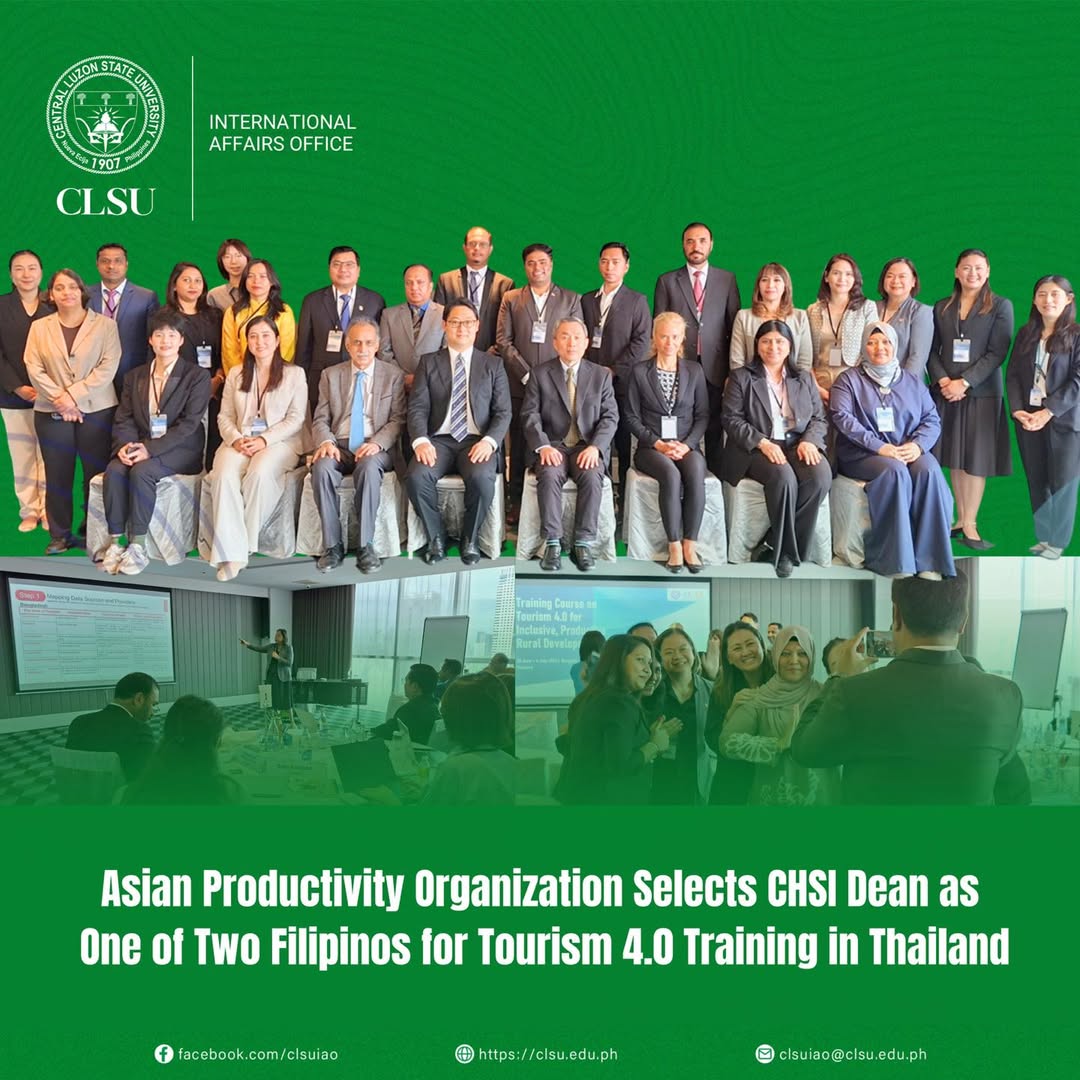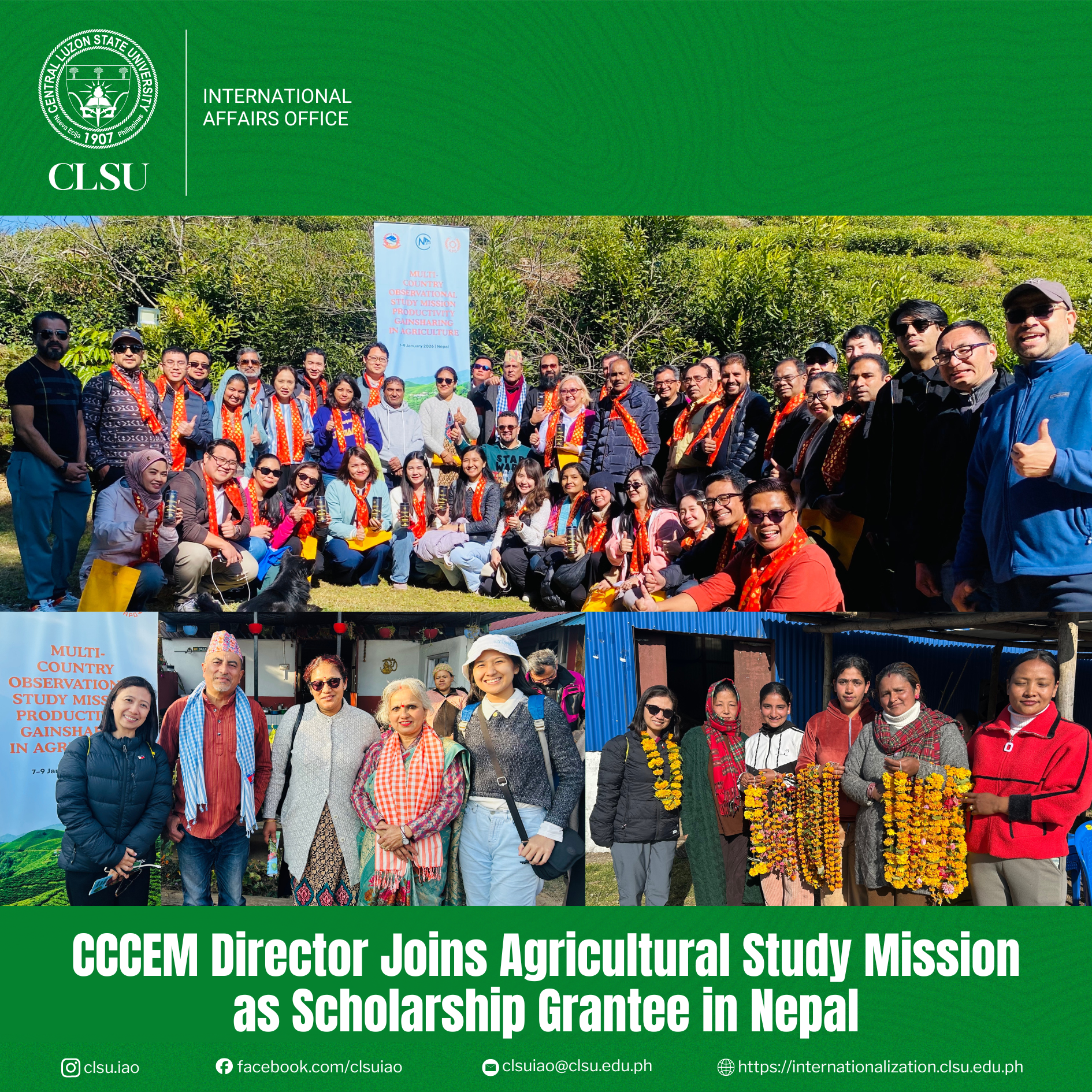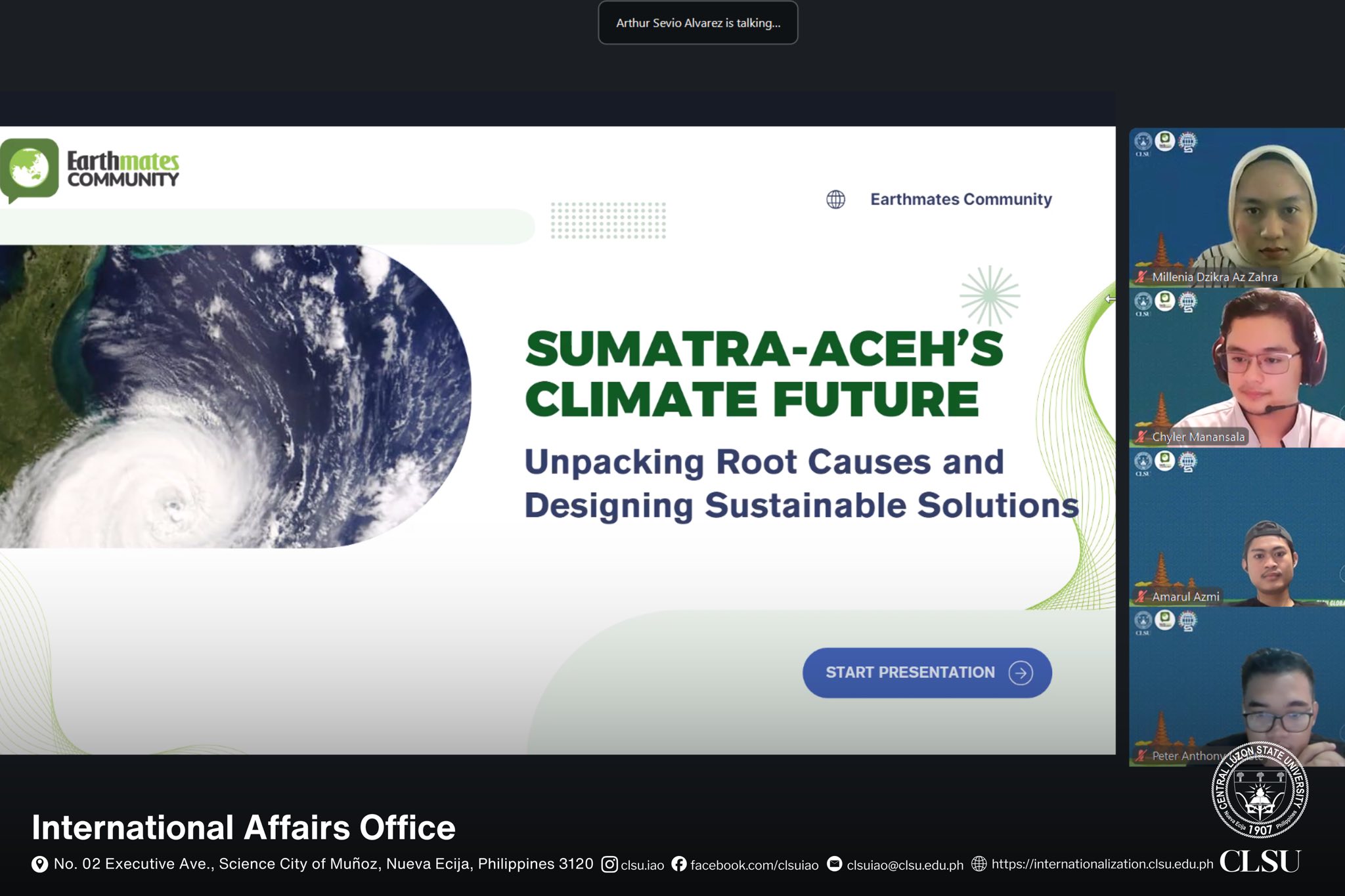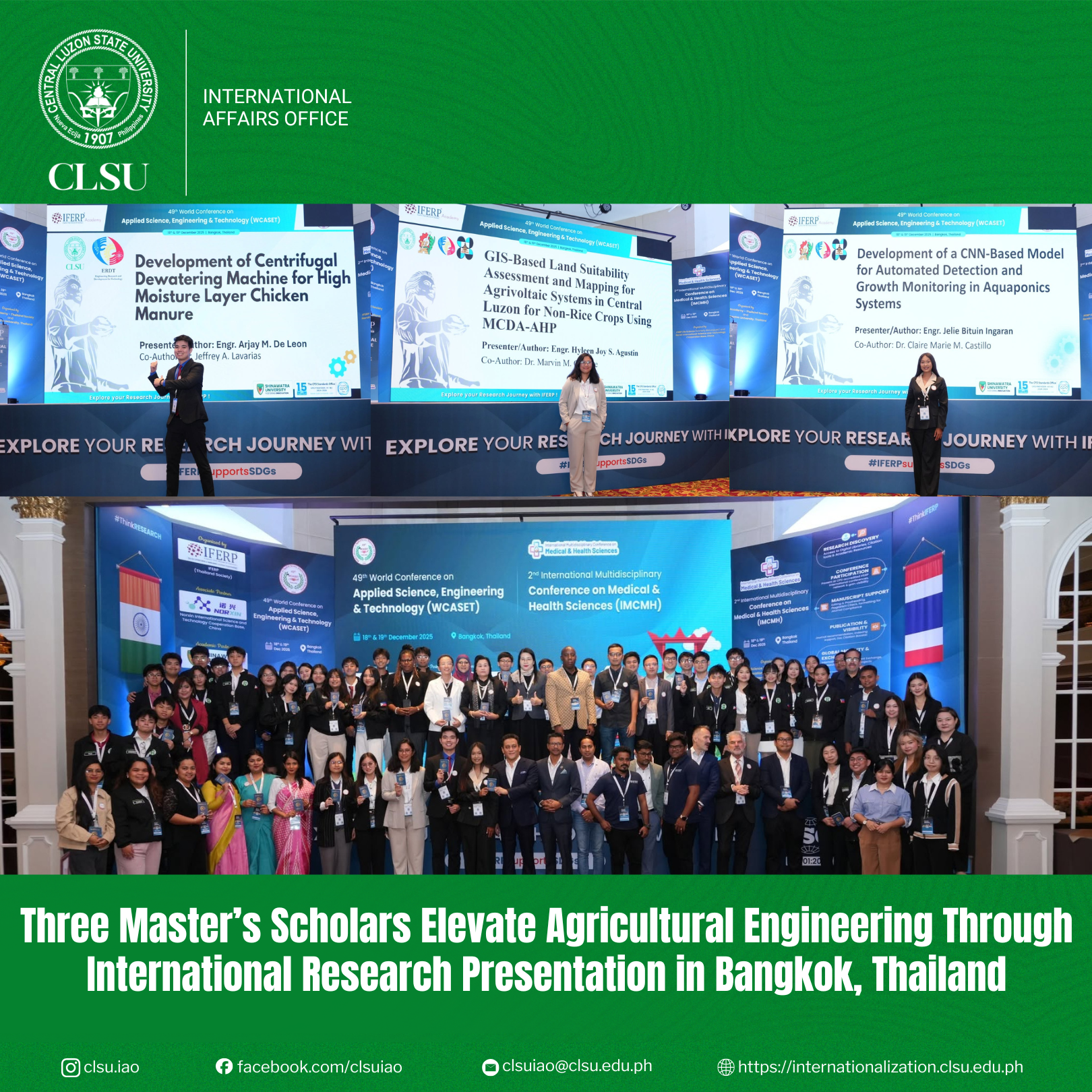
Asian Productivity Organization Selects CHSI Dean as One of Two Filipinos for Tourism 4.0 Training in Thailand
Dr. Celyrah B. Castillo, Dean of the College of Home Science and Industry (CHSI) at Central Luzon State University (CLSU), was one of only two Filipino delegates selected to participate in the Training Course on Tourism 4.0 for Inclusive, Productive Rural Tourism, organized by the Asian Productivity Organization (APO) in collaboration with the Thailand Productivity Institute, held from June 30 to July 4, 2025, in Bangkok, Thailand.
Dr. Castillo was recommended by Dr. Reynaldo V. Ebora of Department of Science and Technology-Philippine Council for Agriculture, Aquatic and Natural Resources Research and Development (DOST-PCAARRD), along with a fellow project beneficiary from the Bureau of Plant Industry in Los Baños, for consideration by the Development Academy of the Philippines (DAP)—the Philippines’ National Productivity Organization and APO’s implementing arm in the country. The DAP forwarded nominations to APO Tokyo, which carried out the final screening and selection of participants across Asia. Dr. Castillo, together with the Provincial Tourism Officer of Isabela, was among the two selected grantees from the Philippines.
The training brought together 20 participants from various APO member countries, including the Philippines, Indonesia, Pakistan, India, Taiwan, Türkiye, Cambodia, Bangladesh, Vietnam, Mongolia, Sri Lanka, Thailand, Fiji, Malaysia, and Nepal. It focused on the critical role of data management, system development, and technological innovation in improving inclusive and responsive tourism services—especially in rural areas.
In an interview with the International Affairs Office, Dr. Castillo shared that the sessions emphasized the need for reliable data to guide tourism-related policies and highlighted European models of responsible tourism, including strategies to mitigate climate change. A key feature of the training was the introduction of infrastructure and technologies that promote accessibility, ensuring that differently abled tourists can travel independently or with minimal assistance.
In reflecting on how the training connects with her work as CHSI Dean, Dr. Castillo said, “Advancing Tourism 4.0 would need a multidisciplinary approach, which is why it is important to share the learnings I gained from this training and collaborate with other units in our university.”
She is now working with the Institute for Climate Change and Environmental Management (ICCEM), led by Dr. Gella Patria L. Abella, to reinforce education-tourism policies that could position CLSU as a leading Agritourism model in Luzon.
Among the many takeaways, Dr. Castillo emphasized the importance of data-driven policy reform in waste management, particularly solid and food waste, which she described as a persistent challenge in the tourism industry. “I believe that once the CLSU community becomes aware of how improper waste management affects both our campus and the broader tourism landscape, we can move forward together in implementing more sustainable practices,” she added.
Recent News


